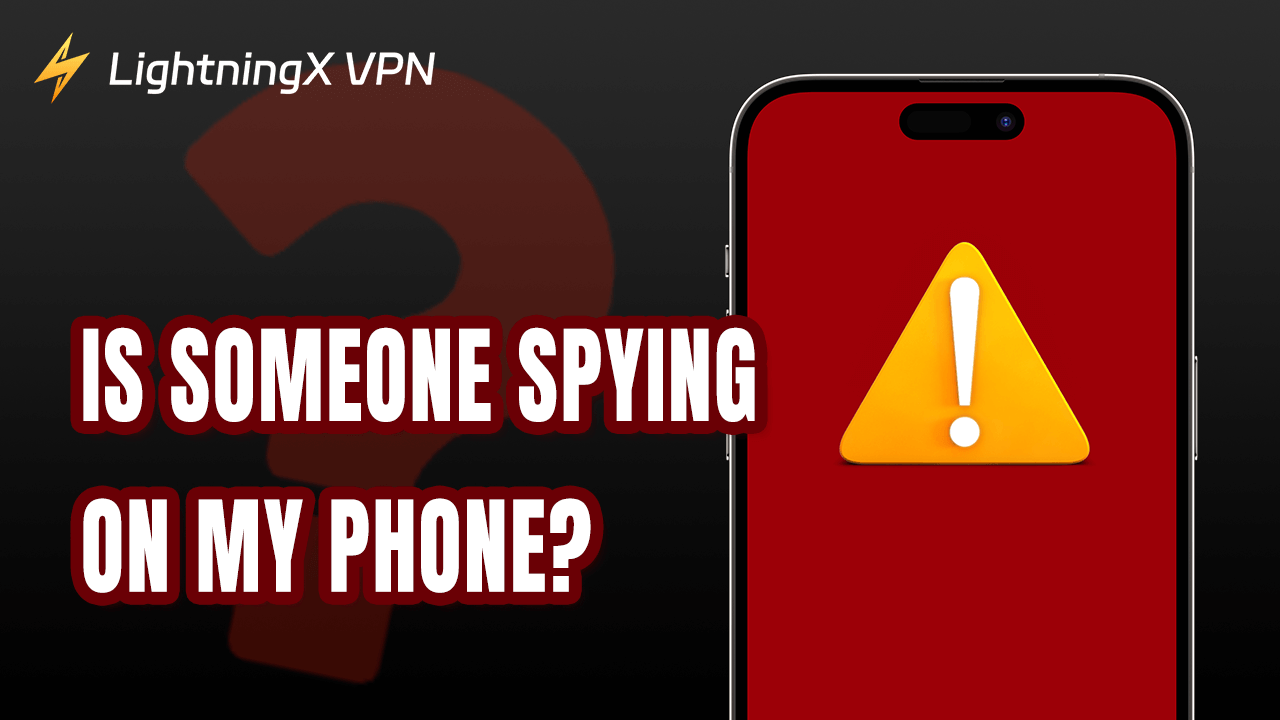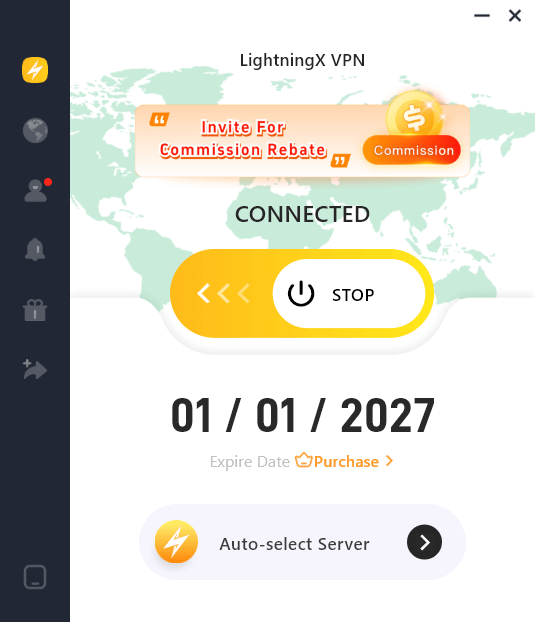Undoubtedly, our phones have become essential parts of our lives. We use them for everything – texting, calling, browsing the internet, banking, and even controlling our smart homes.
With so much personal information stored on our phones, the thought of someone spying on them can be terrifying.
If you’ve ever wondered, “Is someone spying on my phone?”, this post will help you understand what phone spying is and what steps you can take to protect yourself.
Understanding Phone Spying
Phone spying (also called phone surveillance) occurs when someone gains unauthorized access to your phone to monitor your activities, steal your data, or track your location.
This can happen in several ways, such as through spyware apps, phishing scams, or even by someone physically accessing your phone without your permission.
The consequences can be severe – ranging from identity theft to financial loss, and even invasion of your privacy.
7 Signs to Tell If Someone Might Be Spying on Your Phone
Before you panic, it’s important to recognize the signs that someone might be spying on your phone. Here are some common indicators:
1. Battery Drains Faster than Usual
If your phone’s battery suddenly starts draining much faster than normal, it could be a sign that a spyware app is running in the background. Spyware apps consume a lot of battery power because they are constantly working to gather information from your device.
2. Increased Data Usage
A sudden spike in data usage without a clear reason can be another sign. Spyware apps often send the data they collect to a remote server, which requires a lot of data. Check your phone bill or data usage in your phone’s settings to see if there’s any unusual activity.
3. Unfamiliar Apps on Your Phone
If you notice any apps on your phone that you didn’t install, be cautious! Some spyware apps can be disguised as harmless-looking apps, but their real purpose is to spy on your activities.
4. Strange Phone Behavior
If your phone starts acting strangely – like turning on and off by itself, sending texts that you didn’t write, or making calls that you didn’t initiate – it could be a sign that someone has control over your device.
5. Overheating
Phones can get hot for many reasons, but if your phone is overheating even when you’re not using it, spyware could be the cause. These apps run in the background, which can cause your phone to work harder than usual.
6. Background Noise During Calls
Hearing background noise, like clicks or static during calls might indicate that someone is listening to your conversations. While this is less common with modern technology, it’s still something to be wary of.
7. Receiving Strange Texts or Links
Be wary if you receive strange text messages with links or codes from unknown numbers. These could be attempts to install spyware on your phone through phishing.
Related: How to Tell If Your Phone Is Hacked?
What to Do If You Suspect That Someone Is Spying on Your Phone
If you notice any of the signs mentioned above, don’t panic. There are several steps you can take to protect your phone and your personal information.
1. Check for Spyware
The first thing you should do is check your phone for any spyware. There are many great anti-spyware apps (anti-virus software) available. They can scan your phone and remove any malicious software. Some popular options include Malwarebytes, Avast, and Norton Mobile Security.
2. Delete Suspicious Apps Manually
Go through your phone and delete any apps that you don’t recognize or didn’t install. Be sure to check for apps that might be disguised with innocent names but have unusual permissions or don’t seem to make sense.
On Android:
- You can check installed apps by going to Settings > Apps > See all apps.
- Recheck app permission by going to Settings >Privacy > Permission Manager. See which app has accessed unnecessary permissions.
- More measures: detecting usage situations and running services.
On iOS:
- Browse your Home Screen or app Library for unknown apps.
- Check your permissions for all apps in Settings.
- More measures: checking battery usage and even screen time.
3. Update Your Phone’s Operating System
Keeping your phone’s operating system up to date is crucial for security. Updates often include fixes for vulnerabilities that could be exploited by spyware or hackers.
4. Change Your Passwords
If you suspect that someone has access to your phone, change your password immediately. Start with your phone’s lock screen password and then move on to your email, social media accounts, and any other important apps.
5. Enable Two-Factor Authentication
Two-factor authentication (2FA) adds an extra layer of security. It requires a second form of verification (like a code sent to your phone) in addition to your password. Enable 2FA on all of your important accounts to make it harder for someone to gain access.
6. Factory Reset Your Phone
If you’re still concerned that your phone might be in danger, consider doing a factory reset. This will wipe out all data on your phone, including any spyware. However, make sure to back up your important data first.
Related: How to Reset iPad? [Full Guide]
7. Contact Your Phone Carrier
If you believe your phone is being spied on, it might be a good idea to contact your phone carrier. They can help you identify unusual activity on your account and may offer additional security measures.
8. Seek Professional Help
If you’re not comfortable handling this on your own, you can seek help from a professional. A cybersecurity expert can help you thoroughly check your phone and ensure that it’s secure.
How to Prevent Phone Spying in the Future
Now that you know the signs and what to do if your phone is being spied on, it’s important to take steps to prevent it from happening again.
1. Be Careful with Apps
Only download apps from trusted sources, like the Apple App Store or Google Play Store. Avoid downloading apps from unknown websites or third-party stores.
2. Avoid Public Wi-Fi and Use a VPN
Public Wi-Fi networks are often less secure and can be a target for hackers. If you need to use public Wi-Fi, consider using a Virtual Private Network (VPN) to encrypt your data and keep it secure.
Here we recommend LightningX VPN. LightningX VPN uses encryption protocols such as Vless and employs strong encryption algorithms like ChaCha20-Poly1305. These ensure that your data is not intercepted or deciphered during transmission.
3. Don’t Click on Suspicious Links
Be cautious about clicking on links in text messages, emails, or social media, especially if they come from unknown sources. These links could lead to phishing websites or download spyware onto your phone.
4. Keep Your Phone Locked
Always keep your phone locked when you’re not using it. Use a strong password or PIN, and consider using security features like fingerprint or face recognition.
5. Regularly Update Your Software
As mentioned earlier, keeping your phone’s software up to date is crucial for security. Set your phone to automatically download and install updates to ensure you’re always protected.
FAQs – Is Someone Spying on My Phone
1. Is It Legal to Spy on Someone’s Phone?
Generally no. However, if you are a parent and you are monitoring your little kid’s devices for safe, that’s ok.
2. What Are Common Spying Methods?
Watch out for these harmful ways of spying on your phone!
- Spyware apps
- Remote access tools
- SIM card cloning
- Wi-Fi interception
- Physical access to unlock a phone
Conclusion
This post helps you solve this qeustion: Is someone spying on my Phone? Always be aware of the signs of spyware and take immediate action if you suspect something is wrong. Be sure to use a VPN. Remember, your phone is a gateway to your personal life—keeping it secure should be a top priority.



















